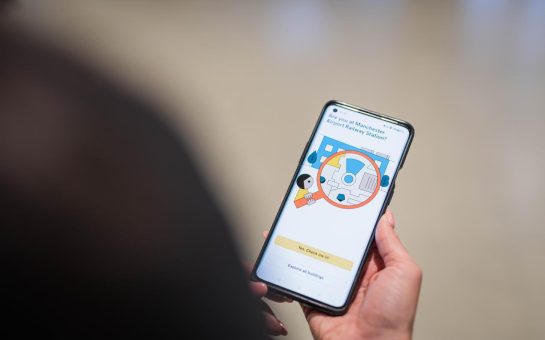The iPhone 12 will contain the new A14 chip, Apple announced after the company unveiled the technology in the iPad Air last month.
The new phone will be the first handset in the world to use a chip manufactured through the ‘five nanometer process’ (5nm process).
The 5nm process refers to transistors on the chip now only being the width of 25 atoms. Transistors are the tiny switches that control the transmission of electronic signals in the chip.
These miniscule transistors are a step up from the 7nm process used to manufacture the iPhone 11’s A13 chip. Though the change may seem incremental, it allows manufacturers to squeeze billions more transistors onto the chip.
Shrinking transistors is crucial in advancing the power of computer chips. By making transistors smaller, manufacturers can fit more on a single chip and hence increase its performance capabilities.
Apple has promised that that the chip’s CPU, which handles running a wide-range of tasks quickly performs up to 40 per cent faster than the iPhone 10’s A12 chip. The chip’s GPU, which handles rendering high-resolution video and photo at the same time, is up to 30 per cent faster.
These upgrades mean the iPhone 12 will be able to run graphically-intense games at a faster speed, edit high-resolution videos and photographs and have a longer battery life than previous generations.
This chip will feature in all four iPhone 12 models: iPhone 12, iPhone 12 mini, iPhone 12 Pro and iPhone 12 Pro Max.
Beyond speed improvements, a new performance feature of the chip is its 5G compatibility, which delivers faster browsing online as well as faster download and upload speeds.
The iPhone 12 has a smart data mode which can automatically switch user settings from 5G to a data-light mode depending on the owner’s activity.
5G plays a large part in the ‘Internet of Things’, which aims to connect everyone and everything – allowing data to be exchanged between different public databases, machines, objects, and devices.
Only two chip manufacturers have used the new 5nm process in their operations so far: Taiwan Semiconductor Manufacturing Company (the supplier of the A14 to chip to Apple), and Samsung.
China’s Semiconductor Manufacturing International Corporation (SMIC) was locked out of accessing the technology by the US government, on the basis that the chip may be used by the Chinese military. The restrictions have damped China’s ambitions to become a leader in micro-electronics.



